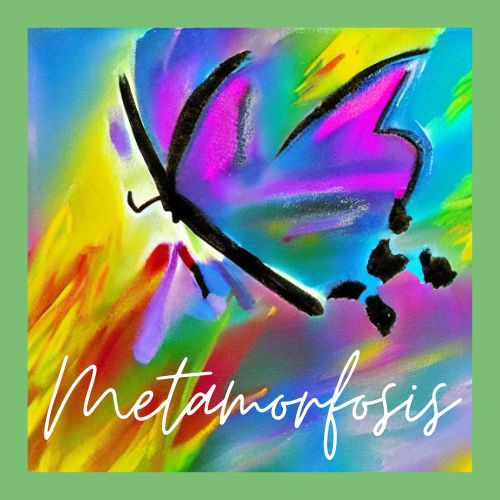I added some links, they are youtube videos in case you want to listen to the artists/songs I mention and all videos have English subtitles.
I’m not from Goias, but I have very high regard for the state and for the people I met there. It was in Goias that my career as an educator began, my son grew up there, and the few friends I still keep in contact in Brazil I met in Goias, even though some of them have also left the state.
When I posted about Living in China and what I learned here, my cousin (we grew up together), who lives in Manaus, reminded me that Brazil, due to its continental dimensions, does not require you to be abroad to feel like a foreigner.
I have no idea what it’s like to live in the North, but when I lived in the South, in a very small and very traditionalist city, people wanted to know my family’s name before knowing me. This, perhaps, was my first experience as a foreigner.
It was not easy for me to adapt to the culture, climate, language, distance from the family. We used to say we felt like we were living in another country. It was difficult to explain how different it was. In some aspects such as education, health and safety, Chapecó was excellent, but on the other hand, it was still very difficult to feel part of the community. I was never able to make friends at school and I couldn’t continue playing soccer, because there, they used to think that it was a men’s sport. When my father was transferred again and we had to move one more time I confess that I was happy with the opportunity to try to make friends.
We moved to São Carlos, not far from São Paulo, a few years after I went to college in Londrina, and finally, we stayed for a short period in Santo André. Ten years and three cities later, it was time to move again, this time to Goiânia and starting over in the state that had more cattle than people didn’t seem very promising.
Of course, the situation was completely different for me this time. For starters, I had the option of staying in Santo André. Although, it didn’t make much sense to continue working as an administrative assistant in a public school, having graduated from the university that year. My son was 8 months old, and there was no doubt that it would be much easier to raise him with the help of my parents than on my own.
It wasn’t the first time we were moving, but it was a fresh start for me. It would be challenging because I wasn’t just going with my parents, I also had a child to raise, and I had much more uncertainties about how I would make it work than any mother would want.
I remember once again having to adapt to local expressions and the climate, but the differences ended there. Nobody asked my last name and the fact that I’m not from Goias didn’t make any difference. After all, Goiânia is 88 years old and everyone has at least one close relative who isn’t from there.
The Midwest is a region that, at the time, offered many opportunities, especially in the agribusiness sector, so it was not surprising to find other people trying better opportunities over there too. It didn’t take me long to get my first opportunity in my field, and the people I worked with were friendly, not that I had friends, but the work environment was nice.
When I went to Ireland, on one of the guided tours I took in Dublin, the guide said that everyone was related to one of the U2 band members or some story to tell about them, and with that premise, he told us his personal story with the band.
Goiânia has a bit of that too, everyone has kinship or a story to tell about a politician, soccer player, or country singer. I used to work at a school that was very bad, but there I met a teacher who recommended me to work at another school. This one paid double what and was much easier to work with, although some students were a little disinterested.
I was never one to ask a lot about students, not that I’m not interested in them, but with the exception of those who need special attention, whether, for medical or psychological reasons, I believe that everyone should be treated equally.
One day, in a conversation with the owner of the school, she let slip that Luciano’s son, from the duo Zezé di Camargo and Luciano, was studying at school. The boy (who already had a beard in high school) was super nice, he was not one of those who used his father’s name, in fact, I never heard him say his father’s name in the room.
One day he was absent (he was always there), on the following day he said that his father had come back from a trip to celebrate the kid’s birthday and they spent the night together. The way he spoke was so casual that no one would ever say that his father was the famous singer of one of the most listened to duos in the country. The school principal later told me that he didn’t use his real name at the school and that he wasn’t supposed to tell anyone that he studied there (this was many years ago, he certainly graduated). To those who do not remember/know, one of his dad’s family members had been kidnapped not long before that year, therefore, his family had to take some security measures.
I confess that I was a country music fan when I was a child, after all, if you don’t know how to sing Evidências, you were not born in the 80s or are not Brazilian. However, the new phase of country music in Brazil was not part of my adolescence, and even in Goiânia, I remember going to one of the most famous country fairs for a single day and not watching any concert.
When I was living in Rio Verde, one day I told my students (I was teaching high school) that they only liked the new country music singers, therefore, they had no right to say that they liked that genre. And that’s how we spent the next fifteen minutes of my class with the students singing old songs, the “real” country music. What can I say, everyone makes mistakes, and I was wrong.
People from Goias, overall, are very proud of being who they are, countryside vibes, they value the country (farms, landscapes, nature, animals) and for any aspiring duo that wants to have a successful career, it is essential that they respect and understand all that Goias stands for.
I lived in Goiânia for 6 years, another year and a half in Rio Verde, and throughout this period the country music didn’t get any space in my playlist. I believe that a year had passed since I was in Guiyang, without returning home and without knowing when I would be able to visit Brazil. I was homesick and I started listening to Brazilian music to alleviate it a little. I was looking for female singers and Marília Mendonça was in it. I remember laughing because I started to listen to her in China and not in Goias, but it’s never too late. Since then, my playlist of the genre has only increased. If I had never listened to Marília Mendonça, I would never have known who Henrique & Juliano, Zé Neto & Cristiano and other artists are.
Of course, one of the reasons that led me to write about Goias and my experience in that state were the deaths of Marília Mendonça and Iris Rezende (5 and 9 November, respectively), two public people from such different worlds, but who gained everyone’s respect. Unfortunately, we live in a time when you can’t even die in peace and this week I was afraid to access my social networks and find hatred. I was happy to see so many messages of solidarity. I could say that it’s probably because I’m surrounded by smart and sensitive people on my social networks, but I prefer to believe that respect prevailed, and they will be missed.
Iris Rezende started his political career in 1958, and if I already thought he was old in 2008 when I moved to Goiânia, imagine 13 years later 🙂 . I don’t like politics, and like any politician, Iris Rezende didn’t please everyone and even his supporters had their moments of disappointment, like when he promised not to leave Goiânia’s city hall to run for governor if he was elected in 2008, and two years later he ran for governor.
This week with his death, I saw a politically engaged colleague from Goias sharing a message on Facebook. In it, he highlighted the participation of Iris in the construction of houses in some poor neighborhoods around the city, in addition to being a politician who deserved respect even as an adversary.
I haven’t been to Brazil for 4 years and I know that a lot has changed, but I will never forget the opportunities I had in Goias. The career I built as a professional, the students who taught me a lot and that I’m proud to see them grow and build their successful stories (I still have some on Facebook), and the people I met who helped me become the person I am today.
I still don’t know when I’m going to visit my friend who used to be my neighbor in 2008 and she still sends me messages, always asking how André and I are doing; my boss who, even after years, has been sharing my blog on her Facebook page and when I needed a recommendation letter she promptly helped me; my friend who moved to Paraná, the friends who are part of the only WhatsApp group I am part, but I will.
I would really like to express how thankful I am for having Goias as my reference when I think about going home and everyone who is part of my story there.




Leave a comment